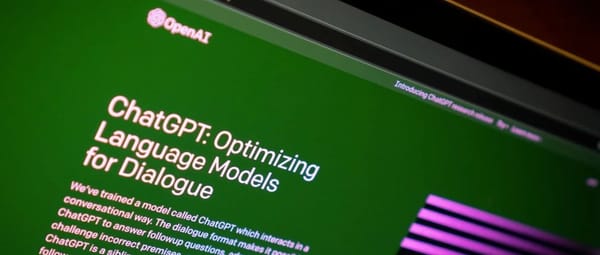OpenAI Developer Day 2025 Launches GPT-5 Pro API, AgentKit, and AI Agent Toolkit
OpenAI DevDay 2025 — Key Announcements and Insights
On October 6, 2025, OpenAI hosted DevDay 2025, unveiling:
- AgentKit: new tooling to build and manage AI agents
- API model options: GPT‑5 Pro and Sora 2
The central theme: Transforming ChatGPT from a chatbot into a runtime environment where software can run, collaborate, and transact directly inside the conversation.
---
Apps Inside ChatGPT
The Shift: Apps in Chat
OpenAI introduced the idea of “apps inside ChatGPT” — third‑party applications that can render interactive UIs directly in chat and share context via the Model Context Protocol.
Developer Tools:
- Preview Apps SDK for building integrated UIs
- App directory coming soon
- Submission review process and monetization guidance planned
Demo Highlights:
- Designing a poster in Canva, then instantly switching to a Zillow property map — all within the same thread
- Chat as a distribution and runtime channel, not just a conversational interface
---
Partner Ecosystem
Launch Partners:
- Booking.com, Canva, Coursera
- Expedia, Figma, Spotify, Zillow
They showcased live, interactive chat experiences embedded in ChatGPT.
Market Reaction:
- Minimal overall stock movement
- Some partners saw brief gains during the keynote
- Signals OpenAI’s push to make chat-based software surfaces mainstream
---
AgentKit — Formalizing Agents
AgentKit Components:
- Visual Agent Builder
- Connector Registry — manage and govern data sources
- ChatKit — embeddable agent UI components
- Integrated evaluation & tracing — monitor, debug, improve workflows
Key Additions:
- Reinforcement fine-tuning
- Generally available: o4‑mini
- Private beta: GPT‑5
This package covers orchestration, guardrails, metrics, and version control — operational infrastructure normally built in‑house.
---
Context & Future Implications
OpenAI is positioning conversational AI as a software runtime environment, potentially making ChatGPT:
- A hub for application interaction
- A space for development & distribution
With:
- Expanded APIs
- Strong consumer service anchors
- New monetization channels
---
Self-Hosted Agents SDK
For portability and compliance:
- Agents SDK (Python & TypeScript) offers primitives for agents, sessions, guardrails, handoffs, with built-in tracing
- Enables designing flows in OpenAI’s UI, but running them locally/on‑premises with identical semantics
---
Codex GA
Codex is now generally available:
- Positioned as a foundation for long-running “do it for me” workflows
- Can reason over project context, call tools, and produce functional artifacts
- Model spectrum:
- High‑end: GPT‑5 Pro
- Low‑latency: real-time models for voice and fast-response cases
---
Sora 2 & Content Governance
Sora 2 is open to developers, now formalized as an app.
Considerations:
- Copyright risks
- Deepfake prevention
- Watermark management
Recommendation: Address provenance, consent, and review policies early.
---
Hardware & Design
A fireside chat with Jony Ive explored future device design philosophy — with speculation about hardware delays and unresolved design decisions.
---
AiToEarn — Complementary Open-Source Monetization
For AI creators:
- AiToEarn: open-source framework for AI content generation & cross-platform publishing
- Integrates analytics & model ranking
- Posts to Douyin, Kwai, WeChat, Bilibili, Xiaohongshu, Facebook, Instagram, LinkedIn, Threads, YouTube, Pinterest, X
- Fits the “app‑in‑chat” vision while ensuring broad distribution & monetization
---
MCP-Style Connectors — Security & Evaluation
MCP connectors can grow your attack surface and enable data exfiltration.
OpenAI’s Security Guidance:
- Least privilege: minimal access grants
- Explicit consent: unavoidable user approval
- Defense in depth: layered safeguards
Best Practices:
- Treat connectors as production-grade integrations
- Keep audit trails for all activity
- Assume prompt injection attacks can cross system boundaries
New Tooling Advantage: Tracing & evaluation now allow measurable agent behavior tracking.
---
Interactive Evaluations & ARC‑AGI‑3 Insights
Engineering Priorities Identified:
- Action efficiency — fewer unnecessary steps
- First-run generalization — handle new tasks without tuning
Manager Tips:
- Build evaluation sets mirroring actual workflows
- Grade full execution traces, not just outputs
- Target the slowest agents as bottlenecks, not just average performance
---
Getting Started
Recommended Resources:
- Official DevDay recap
- Product blog posts
- Apps SDK, AgentKit, Agents SDK documentation & session recordings
> Work through demos to adapt ideas directly into production workloads.
---
Content Strategy Tip
Technical performance is only part of AI deployment — content workflows often span many channels.
Open-source platforms like AiToEarn官网 let teams:
- Generate, publish, monetize AI content across multiple social networks
- Integrate security checks with multi-channel reach
- Maximize audience impact while maintaining compliance
---
Summary:
DevDay 2025 set the stage for ChatGPT as a runtime, platform, and marketplace. Combined with secure connector practices and multi-platform publishing ecosystems, developers can now create, distribute, and monetize AI workflows more efficiently than ever.
---
Do you want me to create a one-page quick‑start diagram showing how Apps SDK, AgentKit, and Agents SDK integrate into a self‑hosted workflow? That would make this summary even easier to implement.


